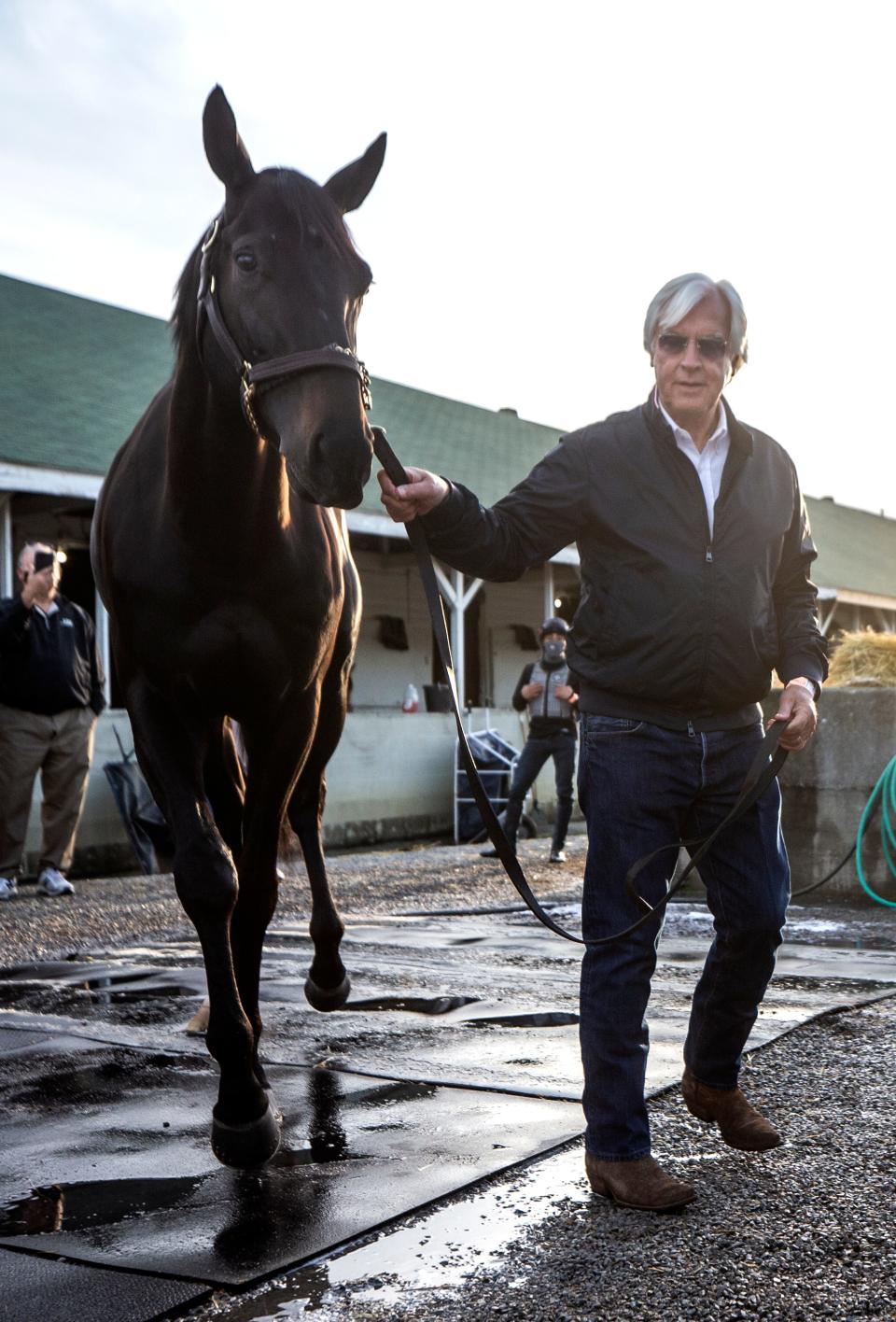Bob Baffert, Medina Spirit's owner given deadline in legal dispute with horse racing panel
FRANKFORT, Ky. — Franklin County Circuit Court Judge Thomas Wingate has given attorneys for Medina Spirit's connections and the Kentucky Horse Racing Commission until Wednesday to resolve their differences regarding additional testing of the Kentucky Derby winner's urine sample.
Attorneys representing trainer Bob Baffert and owner Amr Zedan had sought an injunction that would allow the frozen sample to be sent to a New York laboratory in its entirety. The KHRC objected to turning over the entire sample — estimated at 25 to 27 milliliters — and had offered to provide 2 milliliters for the additional test.
Wingate said he was inclined to allow the KHRC to retain some portion of the sample, and indicated he would issue an order to that effect if the parties did not reach a resolution by Wednesday.
More: Owner determined to tweak Baffert by naming horse 'Bad Test Bob'
"This is a case of very high importance to the state of Kentucky," Wingate said. "If you care anything about horse racing in the state, I think it's something of utmost importance."

Attorneys for Baffert and Zedan are trying to demonstrate that the betamethasone detected in Medina Spirit's blood sample was the result of a topical ointment and not an injection. They contend such a distinction could "completely exonerate" Baffert, and they believe additional testing could prove the source of the betamethasone.
Kentucky regulations make no distinction regarding the source of the substance. According to its medication definitions, a "positive finding means the commission laboratory has conducted testing and determined that a drug, medication, or substance, the use of which is restricted or prohibited ... was present in the sample."
Dr. Mary Scollay, executive director of the Racing Medication and Testing Consortium, has said whether a substance was injected or absorbed through a topical ointment should make no difference in determining whether a disqualification is appropriate. The presence of a prohibited or restricted substance in a horse is what matters, Scollay said.
Baffert's attorneys have argued, however, that the difference is "critical."
Sullivan: Bob Baffert deserved his two-year suspension instead of a permanent ban. Here's why
"There is a huge difference in a betamethasone finding due to an interarticular joint injection versus one from a topical ointment — from both a regulatory and public relations standpoint," they said in a court filing.
The KHRC's penalty guidelines call for suspensions and fines that can escalate based on the number of offenses committed in a 365-day span. A first offense for a Class C medication such as betamethasone is punishable by a suspension of zero to 60 days and a fine from $500 to $1,000, absent mitigating circumstances. A second offense could trigger a suspension of 60 to 180 days and a fine of up to $2,500.
This article originally appeared on Louisville Courier Journal: Bob Baffert, Medina Spirit owner get deadline in Kentucky Derby case

